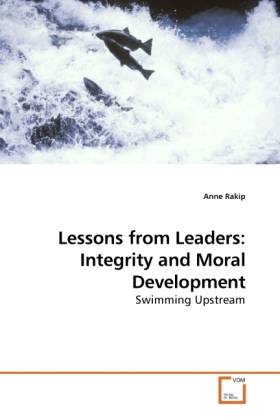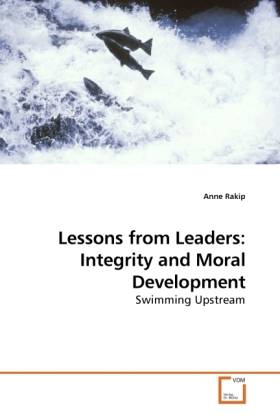
- Afhalen na 1 uur in een winkel met voorraad
- Gratis thuislevering in België vanaf € 30
- Ruim aanbod met 7 miljoen producten
- Afhalen na 1 uur in een winkel met voorraad
- Gratis thuislevering in België vanaf € 30
- Ruim aanbod met 7 miljoen producten
Zoeken
Lessons from Leaders: Integrity and Moral Development
Swimming Upstream
Anne Rakip
Paperback | Engels
€ 67,45
+ 134 punten
Omschrijving
A great deal of literature abounds regarding dysfunction and much discourse and media attention is devoted to those who seem to lack an internal moral code. After spending years in the literature of dysfunction, I felt a need to think about mental health from the opposite end of the developmental spectrum. The only logical way to approach the question, for me, was through the process of interviewing some people who seemed to be polar opposites of those I had formerly worked with in a therapeutic setting. I wanted to know more about how some people s moral code developed and what situations or events taught these social and political exemplars the most about right and wrong. My goal was to learn more about prevention in order to avoid the need for intervention. In the end, I wanted to learn more about how to help children in k-12 schools develop a moral sense that is inclusive and supports a democratic foundation of living in communion with others.
Specificaties
Betrokkenen
- Auteur(s):
- Uitgeverij:
Inhoud
- Aantal bladzijden:
- 192
- Taal:
- Engels
Eigenschappen
- Productcode (EAN):
- 9783639197860
- Verschijningsdatum:
- 26/10/2009
- Uitvoering:
- Paperback
- Afmetingen:
- 152 mm x 229 mm
- Gewicht:
- 290 g

Alleen bij Standaard Boekhandel
+ 134 punten op je klantenkaart van Standaard Boekhandel
Beoordelingen
We publiceren alleen reviews die voldoen aan de voorwaarden voor reviews. Bekijk onze voorwaarden voor reviews.











